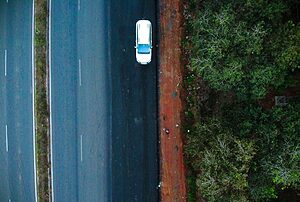In brief
- Income in the report is calculated (guessed) on the basis of unrealised gains, which no country does. Why do that?
- Tax paid indirectly is impossible to figure out for extensive investment portfolios.
- The gains from capital assets are not taxable. Wealthy people have mostly capital assets. Is that news to anyone?
- Media just parrots the Minister’s summary of cherry-picked numbers without examination.
The High Wealth Individuals Research Project
Inland Revenue released The High Wealth Individuals Research Project report based on tax information of 311 Kiwis worth an average of over $250M each – as best the Government can estimate.
Notwithstanding the length of the reports (three, totalling about 250 pages), we can make our points simply.
We question using deemed income on an accrued value basis, since that is a theoretical approach that many consider unworkable in the real world because it involves too much guessing. This rightly exposes the report to criticism.
The analysis can’t really figure out the tax paid by the very wealthy indirectly, and the reports admit to such limitations. For instance many wealthy people have considerable overseas investments, so what about the tax paid overseas? Shouldn’t it be the total tax bill indirectly borne by the person, rather than only counting the NZ portion? Ditto for the tax paid on interest earned in a PIE structure, which is ignored in the high wealth analysis. With all indirect tax included the effective tax rate for the wealthy would definitely go up.
Assumptions pre-determine outcome

Image by ccPixs.com
The headline conclusion could have been derived with sufficient accuracy in a matter of hours.
Once it is decided the subject group is going to be this wealthy, you might as well just assume the lion’s share of the income will come from capital gains, since it is a certainty. Also, notably, the average age of this carefully selected group is over 67, so has less employment income.
Minister Parker says the wealthy group is paying 9.5% of their fictional income number as tax, including GST. As noted above, this estimate is too low but the real number isn’t known. As a contrast, Parker chooses a person who makes $80k and has no deemed or actual income that would qualify as a capital gain. He says that person pays tax of 30% ($24k) overall, including GST.
Let’s instead compare to a person making 120k per year in salary, but assume they also make $120k in house appreciation (reasonable during the study period). So half their income will be untaxed and a reasonable estimate(in line with the study numbers) of their overall tax rate will be about 16.5%, including GST.
The Minister is choosing the most favourable examples to minimise the tax rate of the wealthy and maximise the rate of average Kiwis.
In conclusion
The media simply parrots the Minister’s numbers, even after being misled by this Government many times (eg. ignoring 3 Waters debt, death “with” COVID changing to death “from” COVID).
The numbers are presented as being more precise than they really are – a range should be used. The effective tax rate varies greatly depending on the assumptions. Yes, it is obvious capital gains reduce your effective rate. So, wealthy people will often pay a lower percentage rate than ordinary Kiwis since they are better positioned for capital gains.
Why do this study when the answer is so obvious? And why might a country want a lower tax on capital gains (as many do)? That is for another day.



















